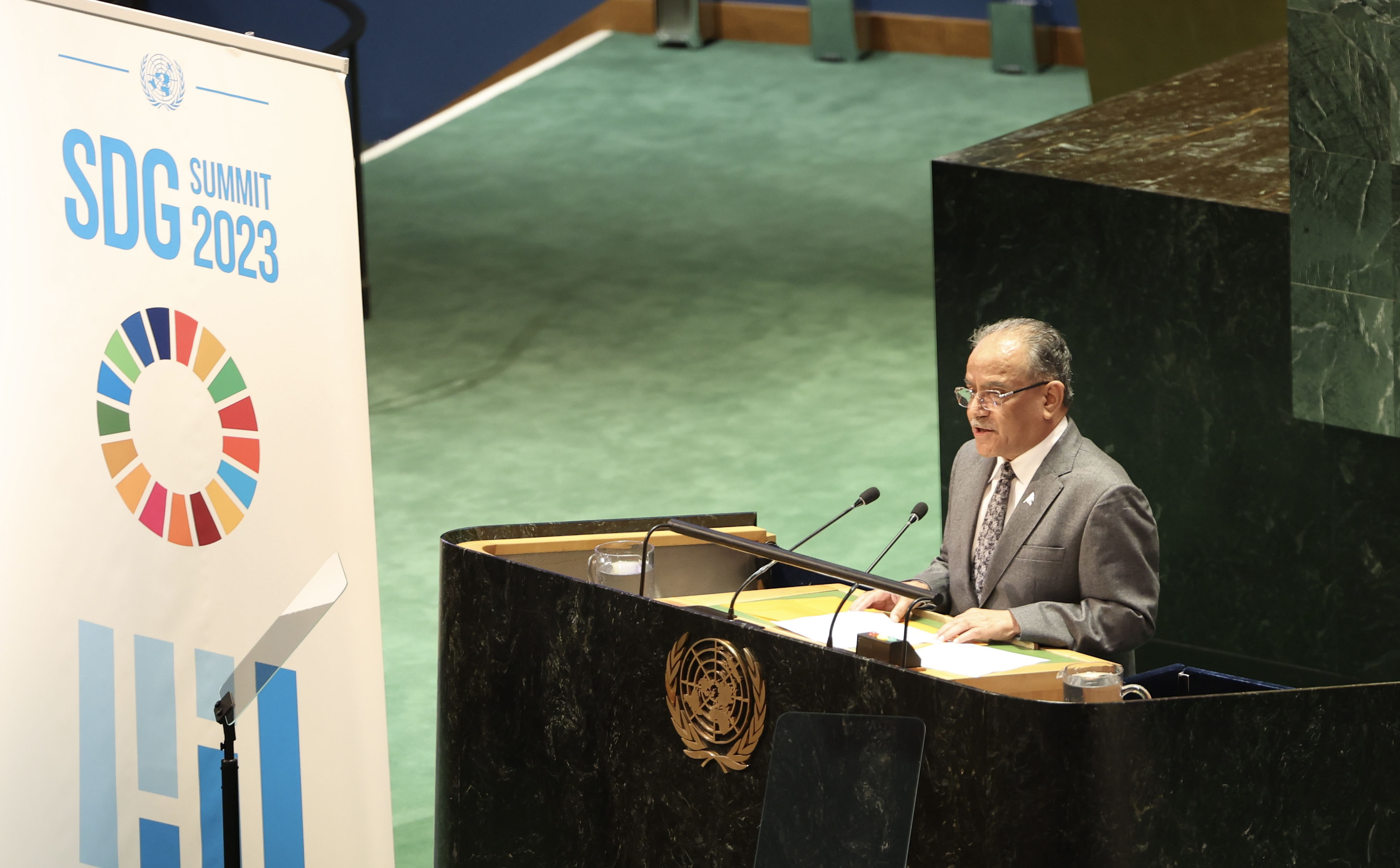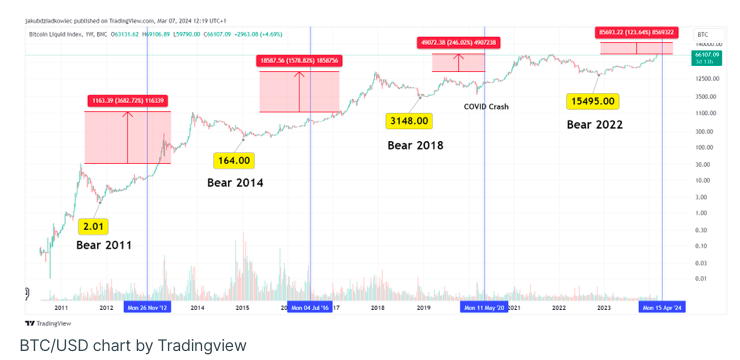Enhancing Resilience And Sustainable Development In Least Developed Countries

Table of Contents
Investing in Climate Change Adaptation and Mitigation
Climate change disproportionately impacts LDCs, exacerbating existing vulnerabilities. Investing in adaptation and mitigation is crucial for building resilience and securing sustainable development.
Climate-Smart Agriculture
Food security is paramount in LDCs. Climate-smart agriculture practices are essential for ensuring sustainable food production in the face of climate change. This involves:
- Promoting drought-resistant crops: Investing in research and development of crop varieties that can withstand drought conditions is crucial for increasing yields and ensuring food security, even during periods of low rainfall. This includes exploring indigenous and locally adapted varieties.
- Efficient irrigation techniques: Implementing water-efficient irrigation methods, such as drip irrigation and rainwater harvesting, can significantly reduce water consumption and improve crop yields. Training farmers in these techniques is critical.
- Climate-resilient farming practices: Promoting conservation agriculture, agroforestry, and integrated pest management can enhance soil health, reduce reliance on chemical inputs, and increase resilience to climate shocks.
Details: Successful climate-smart agriculture projects in countries like Bangladesh and Ethiopia have demonstrated significant increases in crop yields and farmer incomes, improving livelihoods and contributing to national food security. These initiatives often involve support for farmers' cooperatives, access to microfinance, and investment in agricultural research tailored to local contexts.
Renewable Energy Infrastructure
Access to reliable and affordable energy is vital for economic development and poverty reduction in LDCs. Transitioning to renewable energy sources offers a pathway towards sustainable and resilient energy systems.
- Investment in renewable energy infrastructure: This includes solar, wind, hydro, and geothermal power, reducing reliance on expensive and polluting fossil fuels. Focus should be on decentralized solutions to improve access in remote areas.
- Training programs for technicians: Building local capacity for installing, maintaining, and repairing renewable energy systems is critical for long-term sustainability.
- Policies that incentivize renewable energy adoption: Government policies, such as feed-in tariffs and tax incentives, can encourage private sector investment and accelerate the adoption of renewable energy technologies.
Details: Successful renewable energy projects in LDCs, such as solar-powered microgrids in rural communities, have demonstrated the potential of renewable energy to improve access to electricity, enhance livelihoods, and reduce greenhouse gas emissions. These often involve partnerships between governments, NGOs, and private sector companies.
Disaster Risk Reduction
LDCs are highly vulnerable to natural disasters. Strengthening disaster risk reduction (DRR) measures is essential for building resilience and protecting lives and livelihoods.
- Investment in infrastructure resilient to natural disasters: This includes constructing buildings and infrastructure that can withstand extreme weather events, such as cyclones, floods, and droughts. Building codes and standards must reflect this.
- Community-based disaster risk reduction programs: Empowering communities to participate in DRR planning and implementation is crucial for effective risk reduction. This includes community-based early warning systems and disaster preparedness training.
- Disaster preparedness training: Providing training to communities on disaster preparedness, response, and recovery is essential for improving their capacity to cope with natural hazards.
Details: Effective disaster risk reduction strategies in LDCs often involve community engagement, participatory approaches, and integration of traditional knowledge with modern technologies. Examples include early warning systems for floods and cyclones, community-based disaster preparedness plans, and post-disaster recovery programs that focus on building back better.
Strengthening Governance and Institutional Capacity
Good governance and strong institutions are essential for sustainable development. Building capacity in these areas is critical for enhancing resilience in LDCs.
Good Governance and Transparency
Accountable and transparent governance is fundamental for attracting investment, promoting economic growth, and reducing corruption. This requires:
- Strengthening anti-corruption measures: Implementing robust anti-corruption laws and mechanisms, strengthening judicial systems, and promoting transparency in government operations are vital.
- Promoting civic engagement: Encouraging citizen participation in governance processes, strengthening civil society organizations, and promoting free and fair elections are critical for accountability.
- Enhancing transparency in government operations: Making government data and information publicly accessible, implementing open budgeting practices, and promoting transparency in procurement processes can improve accountability and reduce corruption.
Details: Successful governance reforms in LDCs have demonstrated that improved governance can lead to increased economic growth, reduced poverty, and improved public service delivery. These often involve strengthening government institutions, promoting good governance principles, and fostering partnerships with civil society organizations.
Institutional Capacity Building
Investing in human capital development is crucial for building institutional capacity in LDCs. This includes:
- Training programs for government officials: Providing training on policy analysis, financial management, and public administration is crucial for improving the effectiveness of government institutions.
- Support for capacity-building initiatives: Providing funding and technical assistance for capacity-building programs can help LDCs strengthen their institutions and improve their capacity to implement development programs.
- Knowledge exchange programs with developed countries: Facilitating knowledge sharing and collaboration between LDCs and developed countries can help LDCs learn from best practices and improve their institutional capacity.
Details: Successful capacity-building programs in LDCs have shown that improved institutional capacity can lead to more effective implementation of development policies and programs, improved service delivery, and enhanced resilience to shocks. These often involve partnerships between governments, international organizations, and development agencies.
Promoting Economic Diversification and Inclusive Growth
Economic diversification and inclusive growth are crucial for reducing poverty and building resilience in LDCs. This requires a multi-pronged approach.
Sustainable Tourism
Sustainable tourism can generate income, create jobs, and protect the environment in LDCs. This requires:
- Investing in eco-tourism initiatives: Developing tourism products and services that are environmentally friendly and sustainable can help protect natural resources and biodiversity.
- Promoting responsible tourism practices: Educating tourists and local communities about the importance of responsible tourism practices can help minimize the negative impacts of tourism.
- Providing training for local communities: Providing training in hospitality, guiding, and other tourism-related skills can help local communities benefit from the tourism industry.
Details: Successful sustainable tourism projects in LDCs have demonstrated the potential of tourism to generate economic benefits, create jobs, and improve livelihoods while protecting the environment. These often involve partnerships between local communities, governments, and the private sector.
Value Chain Development
Developing value chains in key sectors can enhance competitiveness and create jobs in LDCs. This involves:
- Investment in infrastructure: Improving infrastructure, such as transportation and communication networks, is essential for efficient value chain operations.
- Access to finance: Providing access to finance for small and medium-sized enterprises (SMEs) involved in value chain activities is crucial for their growth and development.
- Skills development: Providing training and skills development programs for workers involved in value chain activities can improve their productivity and competitiveness.
Details: Successful value chain development initiatives in LDCs have shown that improving value chain efficiency can lead to increased economic growth, job creation, and poverty reduction. These often involve partnerships between governments, the private sector, and development agencies.
Access to Finance
Improving access to finance for SMEs is critical for stimulating entrepreneurship and job creation. This requires:
- Microfinance initiatives: Providing access to microcredit and other financial services to SMEs can help them expand their businesses and create jobs.
- Credit guarantee schemes: Providing credit guarantee schemes can reduce the risk for lenders and make it easier for SMEs to access credit.
- Access to venture capital: Providing access to venture capital and other forms of equity financing can help SMEs grow and scale up their businesses.
Details: Successful financial inclusion programs in LDCs have shown that improving access to finance can lead to increased entrepreneurship, job creation, and economic growth. These often involve partnerships between governments, financial institutions, and development agencies.
Conclusion
Enhancing resilience and promoting sustainable development in Least Developed Countries requires a comprehensive and integrated approach. By investing in climate-smart agriculture, renewable energy, disaster risk reduction, good governance, capacity building, and economic diversification, these nations can build resilience against shocks and achieve lasting progress. Continued international cooperation, targeted investment, and a strong focus on the sustainable development goals for LDCs are crucial for achieving lasting positive change. Let’s work together to strengthen resilience and sustainable development in Least Developed Countries and create a more equitable and prosperous future for all.

Featured Posts
-
 John Wicks True Form One Appearance Across Four Films
May 07, 2025
John Wicks True Form One Appearance Across Four Films
May 07, 2025 -
 Khtwt Almlkyt Almghrbyt Tkhtt Lzyadt Edd Rhlatha Ila Saw Bawlw
May 07, 2025
Khtwt Almlkyt Almghrbyt Tkhtt Lzyadt Edd Rhlatha Ila Saw Bawlw
May 07, 2025 -
 March 14th Cavaliers Grizzlies Game Key Injury Updates And Analysis Fox Sports 1340 Wnco
May 07, 2025
March 14th Cavaliers Grizzlies Game Key Injury Updates And Analysis Fox Sports 1340 Wnco
May 07, 2025 -
 Wyniki Sondazu Prezydenckiego Onetu Czy To Dobra Nowina Dla Trzaskowskiego I Nawrockiego
May 07, 2025
Wyniki Sondazu Prezydenckiego Onetu Czy To Dobra Nowina Dla Trzaskowskiego I Nawrockiego
May 07, 2025 -
 Ouagadougou Pan African Film Festival Royal Air Maroc Continues Support
May 07, 2025
Ouagadougou Pan African Film Festival Royal Air Maroc Continues Support
May 07, 2025
Latest Posts
-
 Investor Predicts 1 500 Bitcoin Growth Is This Realistic
May 08, 2025
Investor Predicts 1 500 Bitcoin Growth Is This Realistic
May 08, 2025 -
 Market Reaction Trumps Crypto Chiefs Assessment Of The Bitcoin Price Increase
May 08, 2025
Market Reaction Trumps Crypto Chiefs Assessment Of The Bitcoin Price Increase
May 08, 2025 -
 Bitcoins Future Exploring A Potential 1 500 Price Increase
May 08, 2025
Bitcoins Future Exploring A Potential 1 500 Price Increase
May 08, 2025 -
 Trump Appointees Bold Bitcoin Prediction Following Market Volatility
May 08, 2025
Trump Appointees Bold Bitcoin Prediction Following Market Volatility
May 08, 2025 -
 1 500 Bitcoin Growth Is This Realistic Investment Potential
May 08, 2025
1 500 Bitcoin Growth Is This Realistic Investment Potential
May 08, 2025
